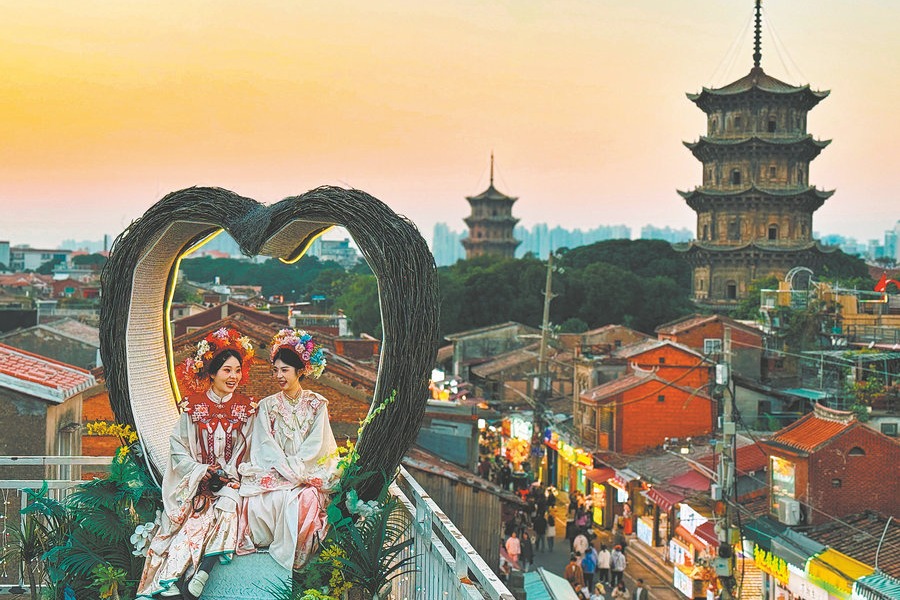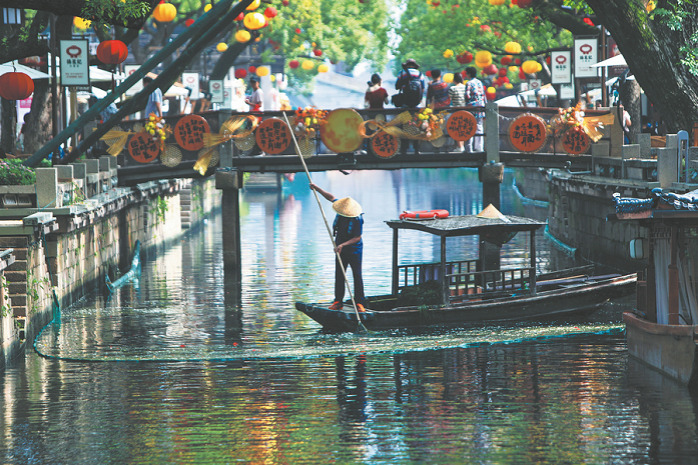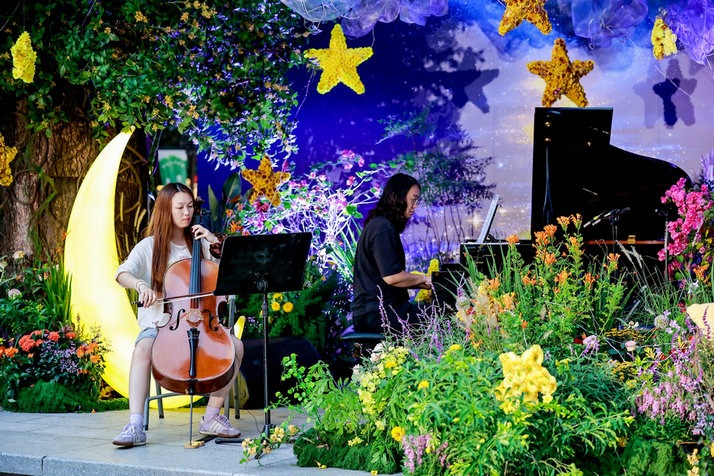Theme parks and resorts prove to boost urban tourism


More visitors have paid return visits to domestic theme parks, with annual pass holders visiting Shanghai Disneyland 12 times per year on average, according to the 2024 Theme Park Development Report.
Exclusive benefits tied to new IPs, events and products are behind the rising popularity of annual pass sales, reveals the report based on 100 seasoned theme park enthusiasts and 20 theme parks.

From the perspective of urban development, theme parks possess distinctive contemporary characteristics, capable of transforming a city's essence, with a spatial driving effect on cities and spillover benefits that boost urban consumption, according to the report.
The report was unveiled at the 8th Development Conference of Theme Parks and Resorts hosted by Beijing Shouhuan Cultural Tourism Investment Co and Beijing Business Today in Beijing on Thursday.

The conference gathered leaders from relevant government departments, experts from research institutions and top executives from leading theme park enterprises, which aims to explore the innovative potential of modern tourism and create new urban living experiences.
Bai Fan, chair of Beijing Tourism Group, says the theme park economy is emerging as a core driver of the cultural and tourism industry and should offer more products and services that are content-rich, warm and human-centric, as travelers are placing greater emphasis on experiential, self-focused and rational tourism.

Xu Zhentao, deputy director of the Beijing Municipal Bureau of Culture and Tourism, says that the future direction of theme parks, their opportunities and challenges, and their profound impact on cities are topics that government, the industry and enterprises must carefully consider.
The capital city will optimize spatial planning to promote all-region tourism development, enhance product systems to upgrade tourism formats and improve service systems to elevate visitor experiences, driving high-quality growth in the tourism industry, Xu says.

































